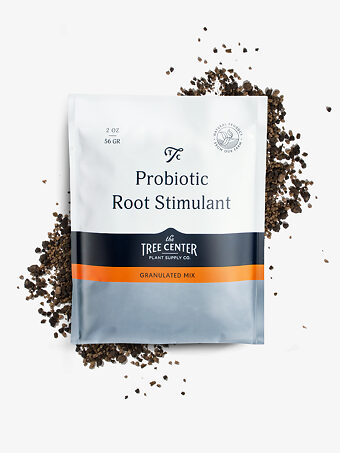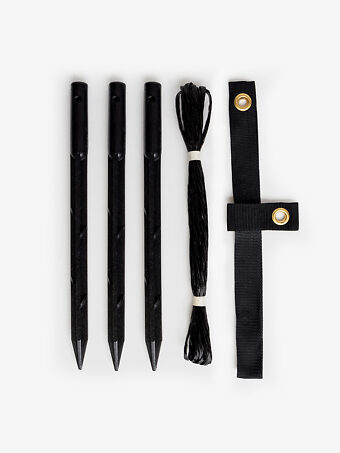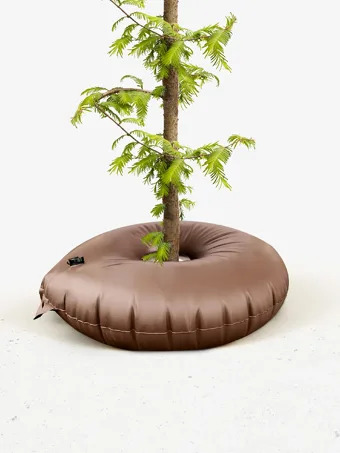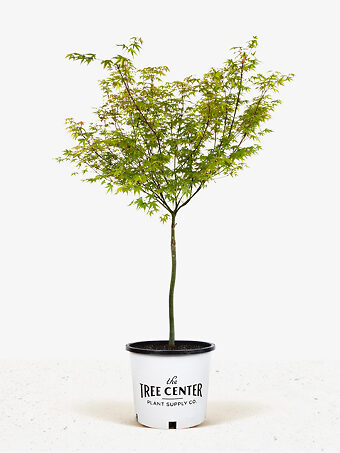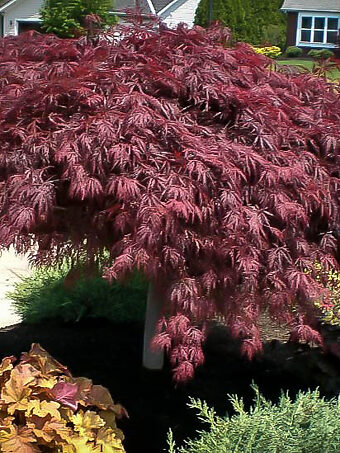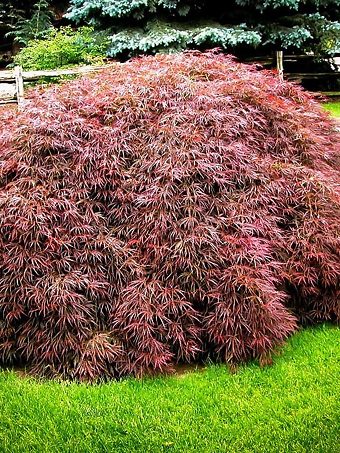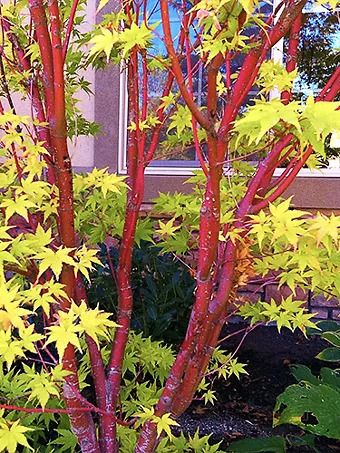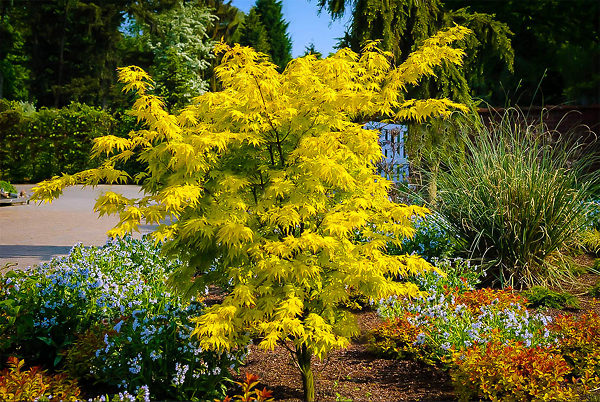
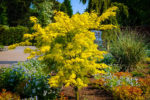
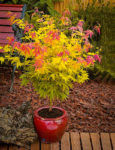
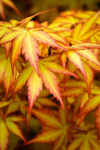
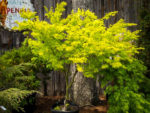

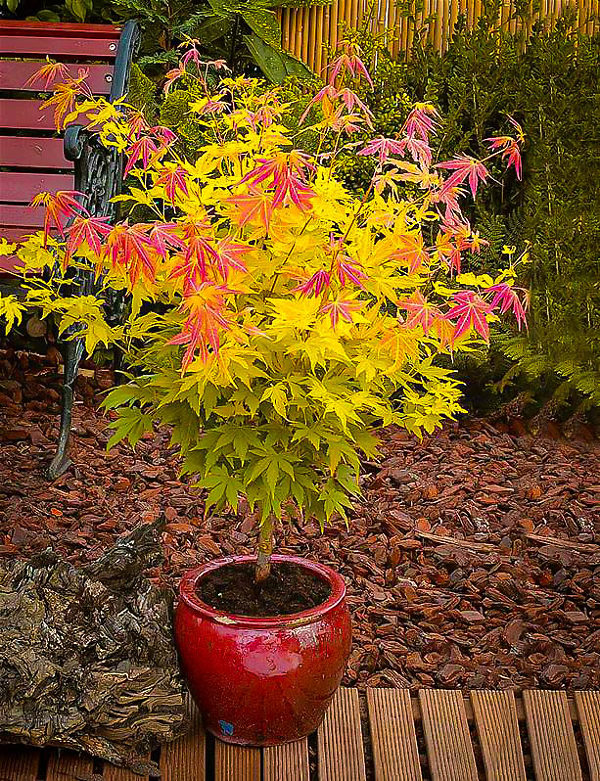
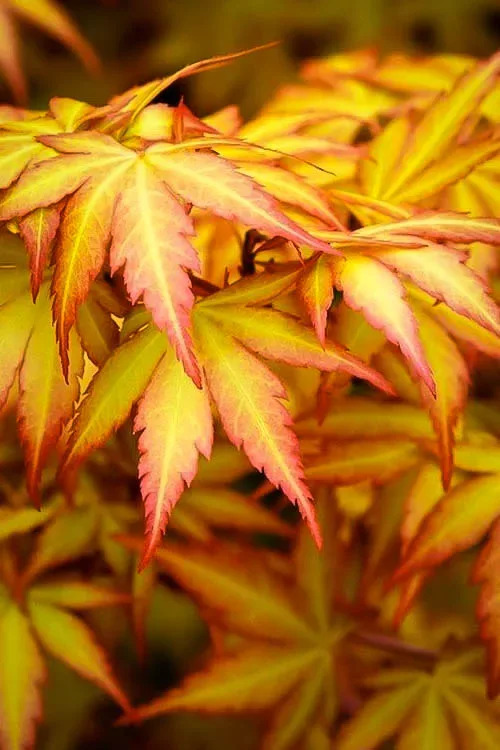
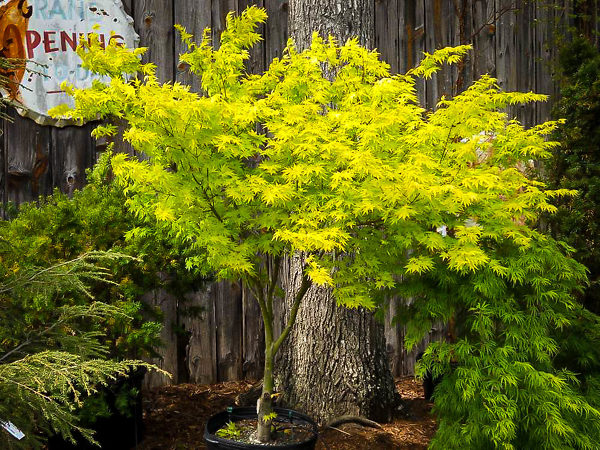
Orange Dream Japanese Maple
Acer palmatum 'Orange Dream'View more from Japanese Maple Trees
Orange Dream Japanese Maple
Acer palmatum 'Orange Dream'
this item doesn’t ship to
The Orange Dream Japanese Maple soon becomes a small tree, about 10 feet tall and 5 feet wide. It is the perfect size for a smaller garden, or to grow in a courtyard, or even in a large container. With its natural form it looks perfect in an informal garden, or an Asian-inspired one. Grow it under large deciduous trees, or in sun, and with some shelter from the heat of the afternoon sun. In spring this tree is stunning with leave of orange-yellow, edged in red. In summer it is a cool combination of green and red tips. In fall it explodes into a fire-ball of orange and umber. Constantly changing, this tree is a fascinating feature in any garden, and with its slightly wider lobed leaves it is much less likely to shrivel and burn, as so many Japanese maples with finely-divided foliage do. It is hardy from zone 5 to zone 8, so it can be grown almost anywhere.
- Spectacular orange and yellow spring foliage
- Vivid brilliant orange and umber fall tones
- Soon reaches 10 feet as a small tree
- Ideal specimen tree in a smaller garden
- Easily grown in a container
Grow the Orange Dream Japanese Maple in rich, moist garden soil that is well drained. It has some drought tolerance when mature, but it grows better with a regular supply of water. Other than that, this is a very easy tree to grow, with no significant pests or diseases. It has rapid growth for a Japanese maple, and it will soon be a beautiful feature in your garden. If you are new to the world of these lovely trees, this easily-grown one is a great and colorful place to start.

Botanical Name:
Acer palmatum 'Orange Dream'
Mature Width:
5-6 ft
Mature Height:
10-12 ft
Grows Well In:
Zones 5-8
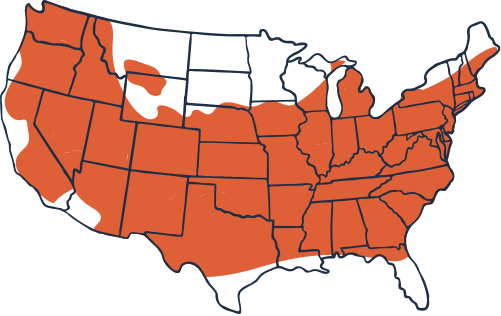
Sun Needs:
Full Sun, Partial Sun
Water Needs:
Low
Growth Rate:
Fast
Flower Color:
Red
Flowering Season:
Spring
